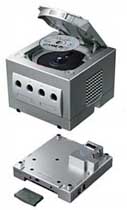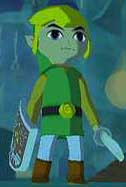
NEW YORK (CNN/Money) - It's no secret that I've taken Nintendo to task for its substandard performance in this round of the console wars. My in-box is full of mail from Nintendo loyalists, who are convinced I'm on the payroll of Microsoft, Sony or longtime gaming industry foe Sen. Joseph Lieberman.
The fact of the matter is the house that Mario built is in desperate need of refurbishing. Once the industry leader, the company is now little more than a dot in Sony's (SNE: Research, Estimates) rear view window. And upstart Microsoft (MSFT: Research, Estimates) has done the unthinkable, passing Nintendo in worldwide market share this cycle � and that lead is extending.
To its credit, Nintendo knows changes are needed. I sat down last week with George Harrison, senior vice president of marketing, to discuss the problems and see how the company plans to make itself a strong contender once again.
Here's the good news: It looks to be headed in the right direction. New bundling plans, a changed philosophy on game design and an attempt to woo back third-party publishers could revive interest in the GameCube. But the company is facing an uphill battle.
 |
|
| Nintendo is considering bundling the GameBoy Player with the GameCube. |
Bundling free games with hardware has long been a key to success for console manufacturers. It was a big step in expanding Xbox sales for Microsoft last holiday season. Nintendo relies on software sales for its income, though, and initially resisted the sales incentive.
"We responded with offers that clearly did not go far enough," said Harrison.
In February, it capitulated, giving away AAA games such as "Metroid Prime" with the purchase of a GameCube, and saw sales start to rise. Just last week, it announced plans to add the still red-hot "The Legend of Zelda" to the bundle offer.
It's what's down the road that intrigues me, however. On June 23, the company will launch its GameBoy Player for the GameCube, letting gamers play their GameBoy Advance games on their television. And Nintendo is already considering a bundle between the GameBoy Player and the GameCube this fall.
It's more than just a gimmick. The move would vastly expand the GameCube's title library -- and fans of classic Nintendo games would once again be able to play those on a large screen. (Nintendo has converted many of its most popular SNES games over to the GBA.)
Meanwhile, the corporate philosophy to game making is undergoing some changes, too. Several AAA titles didn't do as well as expected last year. "Metroid Prime", for example, only sold 800,000 copies. ("We believed it had bigger potential," said Harrison. "It was swamped by things like Grand Theft Auto.") Super Mario Sunshine did better, selling over a million copies, but the game got lukewarm reviews.
Nintendo's chief gaming architect Shigeru Miyamoto agreed with criticism that the Mario game was too hard. And, in a decision that might anger the hardcore crowd, the word has since come from up high to make games less challenging.
"We're trying to go back and make sure we don't let technology alienate players," said Harrison. "We want to make games that are accessible to everyone."
 |
|
| Zelda will be bundled with the GameCube starting May 4. |
Third party software development has been the key to the PlayStation's success and played a big role in the Xbox's gains as well. Nintendo's relationship with outside companies hasn't always been smooth, though. In an attempt to extend the olive branch, the company recently cut its royalty rate (the amount publishers must pay Nintendo for each copy of a GameCube game they sell). And a high profile partnership with Electronic Arts (ERTS: Research, Estimates) could spark gamer interest.
It will be particularly interesting to see how EA utilizes the connectivity feature of the GameBoy in its franchise titles, such as Madden football. We should learn a little more about that next month at the Electronic Entertainment Expo, where Harrison said the focus will be on third-party titles, rather than homegrown Nintendo games.
Of course, analysts expect to see console price cuts in the next month or so, also. Harrison downplayed those, saying "there are no plans for any price decreases in the near future." He quickly acknowledged, though, "Nintendo is generally not the leader in hardware price cuts."
(I should note that he told me the same thing about Nintendo's price cutting plans last year. One week later, GameCube prices fell from $199 to $149, so take those denials with a grain of salt.)

| |
|
Previous columns? Click Mario Morris.
|
|
As for online gaming? Forget it. Nintendo is still very skeptical about the concept, saying consumers might be interested, but have shown no willingness to pay for it. The company was particularly discouraged by the disappointing launch of "The Sims Online". Harrison's gut feeling is online Nintendo games are "probably a few years away. It really depends on the success of the GameCube and whether people think it's worth the investment."
Nintendo has a lot of ground to make up in this generation of gaming. And if it wants to be a player in the next generation, it needs to recapture some of its lost market share. It has some good plans. The question is: Is it implementing them too late?

Morris, who really enjoys "Mario Party 4" he'd like to add, is Director of Content Development for CNN/Money. Click here to send him an email.
|

